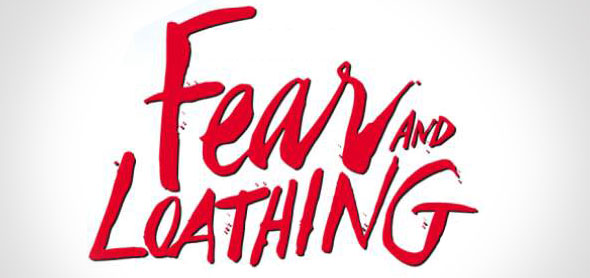
fear & loathing in abbottabad (and beyond)

trivia time.
what’s the most common phrase in the bible?
[insert annoying jeopardy music]
[sorry, there’s no prize except the pride of winning…]
[well, we could probably arrange for an awkward side hug…]
[stringing this out way too long…]
people are often surprised to learn that “fear not” (or “do not fear” or some other iteration) is, in fact, the most common phrase in the bible. with nearly 400 uses, it appears far more than any other phrase throughout scripture.
the question, naturally, is why that is so common.
i could certainly be wrong, but my inclination and understanding of the trajectory of scripture is that one of the most fundamental connecting points of people is fear. one of the threads that link most all living things (why, most often, does a snake bite?) is that we are prone to fear-based living and relating.
we’re scared of the dark. we’re scared of the boogie man. we’re scared of clowns. ok, that last one is understandable…
but we’re also afraid to fail. we’re afraid to die. we’re afraid to make a big career move. we’re afraid to live in the “wrong part of town”. we’re afraid to be alone.
with whatever thing you might fill in the blank with, there’s at least one person out there somewhere who fears it.
there are many things i can get on a soapbox about and many of those things simply become places where i gripe and rant. often, it’s just not helpful. this issue, though, is one i can mount with the best intentions, offering the opportunity for positive and constructive self examination. fear runs peoples’ lives and it’s just become something that really creates a rise in me.
so when i saw brian mclaren’s piece on tony campolo’s red letter christians blog about the killing of osama bin laden, fear and our (the united states’) cultural identity, it resonated loudly in me. mclaren gets at the heart of our culture of fear (in the context of a post-bin laden world) by saying,
Fear is a foolish counselor, and it is also an addictive one. As the work of Rene Girard and others makes clear, our national anxieties love to vent themselves on some monster, real or imaginary. We can unite our party, if not our nation, around common aggression against shared fear — even if we can’t unite them around a common vision around shared values. This trade in the currency of fear sets us up for a boom-bust cycle not unlike our economic cycle, and not unlike the vicious cycles of agony and ecstasy known by addicts.
Running a society on fear is a lot like running a society on debt. It runs just fine for a while, but the merciless crash at the end comes by surprise.
Fear-as-fuel causes a kind of social global warming, filling our social atmosphere with invisible toxins that subtly, silently, relentlessly change everything and make our society less humane and less habitable. Those who live by the sword, Jesus said, will die by it, and I imagine the same could be said for fear, because the sword — like the knife, bullet, gun, or bomb — is in the end an icon of fear, a fetish of intimidation intended to drive others into a fearful retreat or surrender.
mclaren continues by raising some challenging, but necessary questions about the path down which fear is taking our country. the “green scare” that he discusses is one that has been growing for almost a decade. we’ve created a monster, as mclaren points out, that people can rally against. but now, that monster has been slain.
so what monster is next? what do we have to fear now?
and at what point, as mclaren concludes with, do we become the very monster who we’ve obsessed over and feared for so long? when do our “interrogation techniques” simply become torture? when does our killing for the sake of “justice” simply become murder?
fear distorts. it causes us to justify our actions, while vilifying the other. for that matter, it causes us to view the “other” as, well, the other—less-than-humans not like us.
further, the irony is that it’s impossible to truly have liberty and be fearful. fear produces a certain kind of bondage. as much as we fight for freedom, we create less of it by fearing some monster that might or might not be out there. (often the thing we fear is a figment of the same source that creates the fear.)
for example, at its core, what is white flight? it’s the relocation from one’s home to an isolated area with no more physical contact with one’s former home. now, define prison and tell me how the two definitions compare. while we might say that one is voluntary, it’s still the fear that drove you away from your home—not simply the will to move. fear creates a prison.
when we obsess over locking our doors. when we stay with a job that makes us miserable, but is safe. when we feel compelled to keep weapons in our homes for protection. when we stay with someone who is neglectful or abusive. when we realign our values concerning the life of another, even when it’s an enemy, fear has become a master.
fear not. it appears throughout scripture nearly 400 times and there’s a reason for it. fear controls and distorts and keeps people in bondage.
when we choose to live beyond the grip of fear, we’ll be able to defeat monsters—both beyond us and within us.












